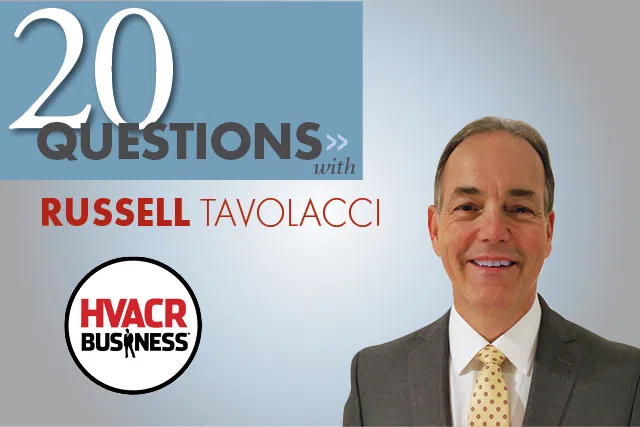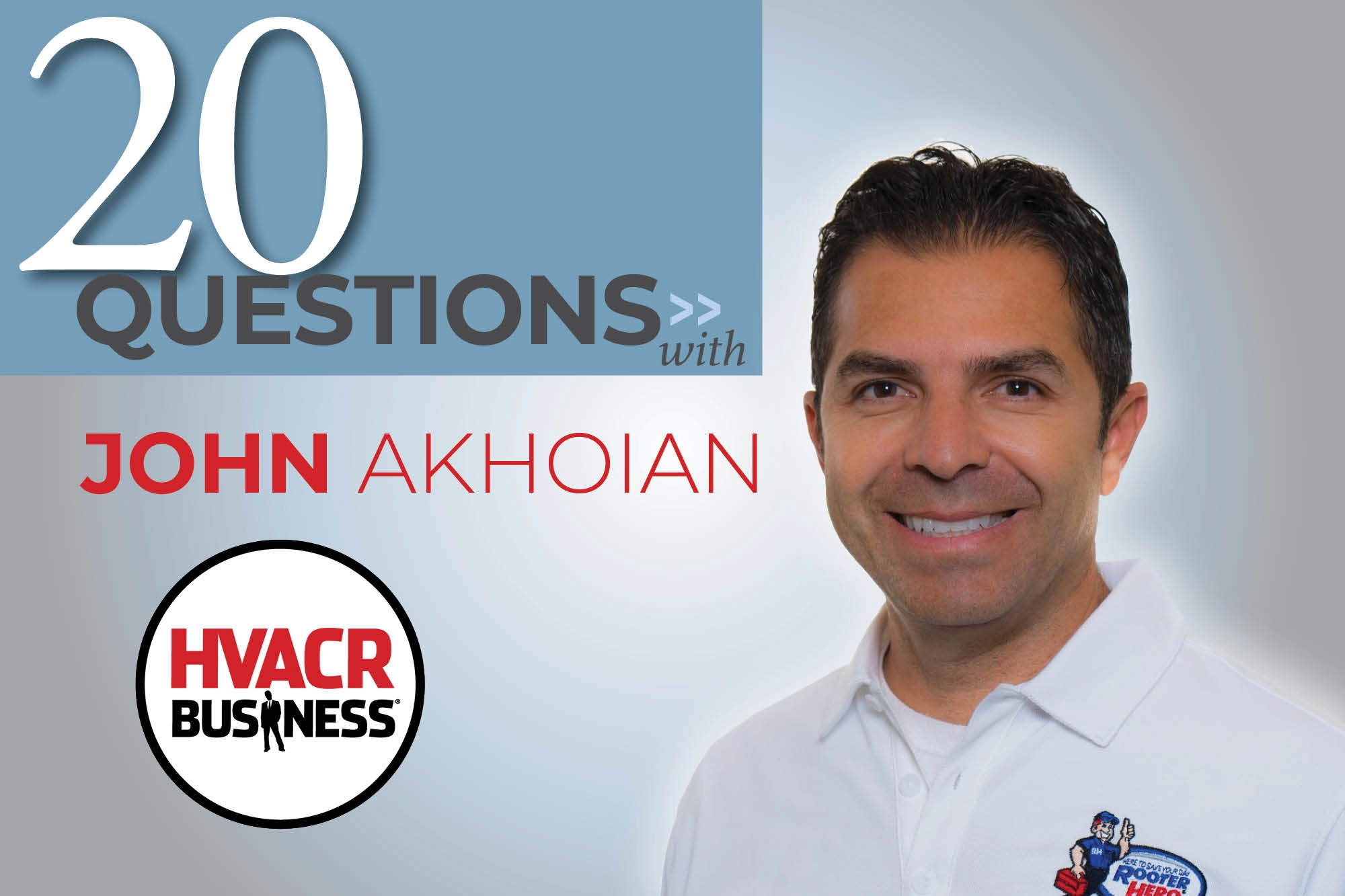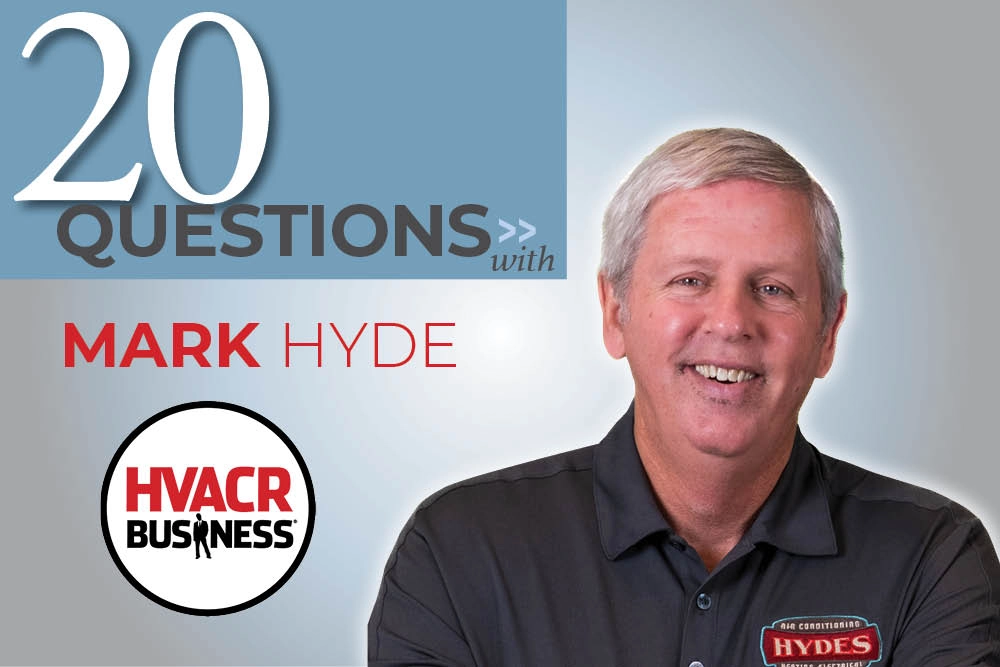Terry Tanker sat down with Russell Tavolacci, senior vice president at Samsung HVAC. The two discussed assembling and managing a team, the future of the industry and the importance of training skilled labor.
1. What did you do after you graduated from Northeastern University in Boston?
I was a mechanical engineer and worked for a mechanical contractor in New York. I had several mentors in that business and really learned the commercial business and how it runs. From there I went to work for Hitachi and began to learn about the OEM business, specifically chillers.
2. Do you prefer the manufacturing side?
Yes, that’s why I’ve stuck with it.
3. How does your management style differ from mechanical contractor to manufacturer?
I wasn’t managing anyone as a contractor, that came later. But I think my style would remain laid back. When I assemble a team, I don’t pretend to be the best short stop on the planet but I want to hire the best one I can find.
4. What, specifically, are you looking for?
I look for people who want to be part of a team and bring passion to their specific area. When you find people like that, they run their show, so to speak, but we collaborate on understanding the big picture, where we’re all headed, the best way to achieve results and how we can work together to make it all happen.
5. How do you hold managers accountable?
With quarterly reviews, or maybe a little longer based on what we’re trying to accomplish. Some of our marquee topics within the business may be reviewed more often.
6. How do you recruit a team?
I look for people who have a certain amount of experience and some degree of specialty. Contrast to that, however, I look for someone who has somewhat of a completely open mind. Their experience may not be as deep, but they’ve demonstrated a certain drive.
7. Is it easier to promote from within?
If you’re inside an organization, you certainly have a leg up based on your understanding of the company and its culture. Internally, I like to see people voluntarily bring a plan to the table. They know the path they want to take and just need the support of management and organization. That attracts me.
8. What role does planning have?
We all need a plan. But, when people say to me ‘What’s your plan?’ I turn that around and say ‘What’s your plan? What should we be doing?’ I expect the people I work with to challenge me. Whatever I present to them, they should be trying to poke holes in it.
9. Aren’t most mangers uncomfortable with that?
It’s not about being disrespectful. How often have you presented a plan of action and no one spoke up, only to find later that the textbook plan you laid out doesn’t work in the real world?
10. How does your business plan come together?
Like so many other divisions at large companies, we have long-term and short-term goals. Management wants to know what investments are needed, as well as what type of support. Those are the two bookends. Everything in between is the business plan, which is left up to me.
11. What’s your favorite part of managing?
Without question, it’s growing people and careers. I love when those around me see the challenge and have the opportunity to develop. I do that because I remember having mentors when I was younger and I appreciated those individuals for helping me.
12. What’s your least favorable aspect?
[Laughs] It would be almost the same answer but in a different way. It’s managing people that simply don’t want to learn and don’t want to grow. They only want to punch in and punch out.
13. How do you protect your stars from getting poached by other companies?
First, you make sure people are rewarded properly. Obviously, there’s the monetary component, but there’s a lot more that goes into being rewarded and satisfied in your job. You have to acknowledge the aspirations of those who want more responsibility, and show them a path to where they want to go. I try to draw out their best qualities, help show them how to step into leadership positions and share those qualities with their peers.
14. As an industry, where are things heading?
Electronics and controls are going to continue to become bigger and bigger. Soon, everything will be interconnected. It will help consumers save energy, be more comfortable and have total control.
15. How do you shift consumer thinking when it comes to mini-splits and VRFs?
I try to relate it to something people already know. In the north, many homes are heated with hydronics. People see the radiator in the room, and know they can control their home room-by-room, area-by-area. People like that.
16. So, this isn’t a new concept to learn?
Suddenly we’re introducing that again with ‘ductless air conditioning.’ Overseas, it’s not called ‘ductless.’ It’s called room air conditioning. Wow! A novel phrase. As time evolved with those systems, they put multiple ductless units on a single outdoor system, resulting in room-to-room-to-room control. Just like with hydronics. So why not do that with the heating and the cooling system?
17. Where do you see this segment going?
The mini-split market is making its inroads into the general unitary residential world. Product system cost is going to go down, because it hasn’t really matured yet. It’s not matured inside the United States. It’s never going to overtake the ducted systems, at least in our lifetime.
18. What training do contractors need to pay more attention to?
Going back to the basics … proper charging, proper monitoring of operational conditions. These systems are more sophisticated. Precise measurements and readings of pressures and temperatures for a properly installed system are critical. Also, understanding what the manufacturer’s instructions are in terms of expectations of the startup of a system and the proper install.
19. Why is there so much leakage?
Because the amount of people who are skilled at brazing copper pipes is less and less. That’s why mechanical compression fittings by people like Parker have become such a big deal again. Big time. The human factor is still a challenge but it’s growing, because people realize there are fewer experts, technicians who really know how to properly braze.
20. How can our industry find more skilled labor?
How about the cost of college goes so high that people just decide, ‘You know what? There’s got to be a better way.’ [laughs] It’s also a perception. Those people who are trying to become the middle class, if they can’t afford the $50,000 a year entry point, how do we brand and attract that huge population? This is a career, not only to learn a skill set, but also to be an entrepreneur, which is the American dream.






